Turkish President and leader of the Justice and Development Party (AK Party), Recep Tayyip Erdogan delivered a speech during his party’s parliamentary group meeting at the Turkish Grand National Assembly in Ankara on June 1, 2022.
Responding to a question on whether Turkey blocked the NATO membership of Sweden and Finland to hit back at the United States, US State Department spokesperson Ned Price recently said that “the NATO accession of Finland and Sweden” was “not a bilateral question between” the US and Turkey. Similarly, White House National Security Advisor Jake Sullivan stated the two Scandinavian countries’ accession to NATO was not a US issue.
This is not true.
The whole Western media have said the “Kurdish problem” was the reason why Turkey vetoed the membership of Sweden and Finland. The Western media is reporting that way, because their main function is to extend the hegemony of the US and NATO.
But it would be a grave mistake to characterize Turkey’s objection to the NATO membership of Sweden and Finland just as an effort to increase its bargaining power. By doing so, one cannot understand the conflict between Turkey and the US, which has intensified since 2016.
Turkey has used the “veto” in NATO to take a strong stance against the US’ anti-Turkey policies. Contrary to the statements of Sullivan and Price, the reason for Turkey’s veto is exactly the relationship between Turkey and the US.
While the main emphasis in the statements of Turkish President Recep Tayyip Erdogan and Turkish officials is on Sweden’s and Finland’s support for the Kurdistan Workers’ Party (PKK) and the “Fetullah terrorist organization” (FETO), this is placed in a more general framework. The issues raised by Erdogan, such as NATO members’ embargoes, including on arms sales, against Turkey, and their support for the PKK and YPG (Syrian Kurdish People’s Protection Units, the armed Syrian offshoot of the PKK), mainly refer to the US.
But they also question Turkey-US and Turkey-NATO relations as a whole, beyond the discussion on the NATO membership of Sweden and Finland.
This situation is beneficial for Turkey, and will have important consequences in the future. For this reason, we are at a very important turning point in the path that Turkey took after the coup attempt on July 15, 2016, which was essentially a NATO operation. Known by the name of the cleric, Fetullah Gulen, hiding in the US, the FETO is actually the parallel state structure in Turkey, established and managed by NATO, which was behind the failed coup in 2016.
Some former ambassadors and retired military officers, who are against the US policy toward Turkey, argue that by vetoing the membership of Sweden and Finland, Turkey has demonstrated the advantage of being a NATO member. For this reason, they argue, Turkey should not leave NATO. Without Turkey as a member, they say, NATO could make all kinds of unfavorable decisions against the country.
What has NATO decided in favor of Turkey since the country joined the organization in 1952? Did NATO’s membership and the establishment of dozens of bases and facilities in Turkey through bilateral agreements with the US strengthen Turkey’s security, or did we risk our security by letting our relations with our neighbors, which should have been our primary security partners, to deteriorate which in turn allowed the PKK to grow?
Didn’t Turkey face heavy embargoes when it launched the “1974 Cyprus Peace Operation”? Didn’t NATO member states condemn Turkey’s fight against the PKK in the 1990s, saying it violated human rights and didn’t they impose embargoes on arms sales? How did the disintegration of Yugoslavia, which was NATO’s first out-of-area intervention, serve Turkey’s interests?
NATO countries are not supporting but hindering Turkey’s fight against the PKK and FETO. The US, France, England, Germany, Norway, the Netherlands, all NATO members, even Sweden and Finland, which are desperate to join NATO, support the PKK and FETO.
As a nation, Turkey has over the past seven decades learned from bitter experiences that “US is NATO, and NATO is the US”. All strategic concepts of NATO have been shaped according to US priorities, which are to prevent developing countries, such as Turkey, from forming a partnership across the Atlantic. In fact, as a NATO member, Turkey has approved decisions against itself right from the beginning.
As NATO spokespersons and supporters claim, NATO is not a security alliance; it is a covert organization established by the US after World War II to subdue Europe. Every country applying to become a NATO member must establish a special unit at the heart of its intelligence and security services, but under the direct command of the US, to “fight against communism”.
As former Italian president Francesco Cossiga told Nur Batur, a columnist for Turkey’s Sabah newspaper, the unit is affiliated with the political wing of NATO and includes presidents, prime ministers, party leaders, media bosses and big business groups.
“You will be surprised, but this special agency had nothing to do with NATO’s military wing. It was related to the North Atlantic Agency. (…) The Special Operations Organization was completely dependent on the political wing. Founded in Germany, France, Italy, Netherlands, Belgium, Norway, Greece and Turkey. But similar organizations were created in non-aligned Austria, Switzerland and Sweden.” (Sabah, Feb 17, 2009)
Indeed, NATO is an organization that determines all the policies of its member states, from military to political and economic. NATO achieves this through the network it has established primarily in the security apparatuses of its member states, and increasingly from multinational and large enterprises to so-called civil society organizations and the media. This mechanism is called “Super-NATO”.
Turkey has seen the nation state being liquidated step by step through this mechanism. The NATO membership has created unending problems for Turkey, giving rise to terrorism and souring relations with its neighbors.
As Turkey moved away from NATO’s concepts and gained success in the fight against the “internal SuperNATO mechanism”, it started realizing its national interests. This is the most important lesson of the post-July 2016 period.
Among the 30 NATO members, the most comprehensive, detailed information about this secret, parallel state structure is with Turkey, especially with the Vatan Party, because, since the end of the 1960s, the Vatan Party (as the Workers and Farmers’ Party of Turkey) has been fighting against the “Super-NATO” structure.
Turkey has been fighting against NATO from within since the mid-1990s. Over the 70-year membership of NATO, especially in the last 30 years, it has become clear that being a NATO member does not reduce the threats against Turkey - on the contrary, it increases it.
This article was first published on China daily.


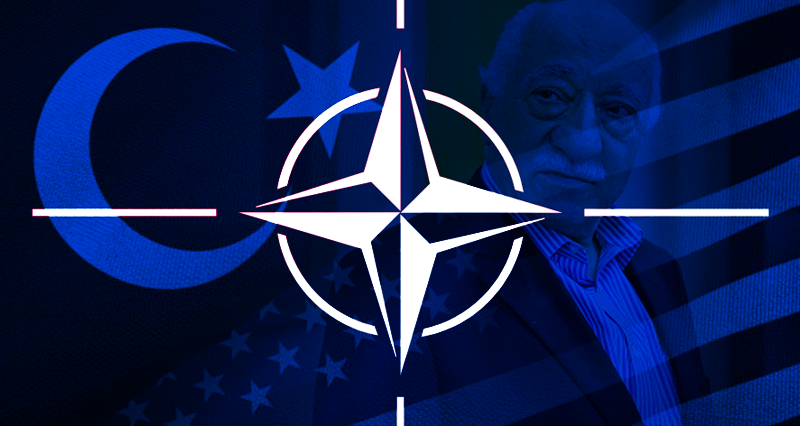

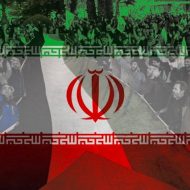
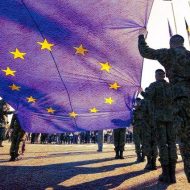

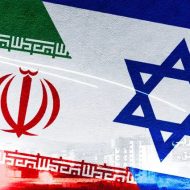
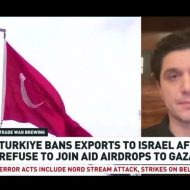
Leave a Reply